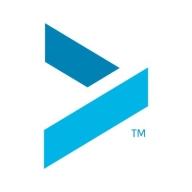

Find out what your peers are saying about Sonar, Veracode, Checkmarx and others in Application Security Tools.
| Product | Market Share (%) |
|---|---|
| GitHub Advanced Security | 7.8% |
| Cequence Security | 0.3% |
| Other | 91.9% |

| Company Size | Count |
|---|---|
| Small Business | 1 |
| Midsize Enterprise | 4 |
| Large Enterprise | 6 |
Cequence, a pioneer in API security and bot management, is the only solution that delivers Unified API Protection (UAP), uniting discovery, compliance, and protection across all internal, external, third-party APIs to defend organizations against attacks, business logic abuse, and fraud. Needing less than 15 minutes to onboard an API without requiring any instrumentation, SDK, or JavaScript integration, the flexible deployment model supports SaaS, on-premises, and hybrid installations. Cequence solutions scale to handle the most demanding government, Fortune and Global 500 organizations, securing more than 8 billion daily API interactions and protecting more than 3 billion user accounts.
The Cequence Unified API Protection (UAP) platform enables security teams to manage through the entire API protection lifecycle that includes support for discover, comply, and protect stages that defend against attackers and eliminates unknown and unmitigated API security risks. The Cequence UAP platform provides three integral components, API Spyder, API Sentinel, and API Spartan that target every stage of the API protection lifecycle, ensuring that customers have one platform to address all their API security issues.
API Spyder (Discover)
Cequence UAP starts with first understanding your API attack surface through API Spyder which discovers your external APIs across managed and unmanaged API infrastructure. This allows security teams to ensure that unmanaged APIs are brought under management to confirm they do not have security risks and have the proper API protection enabled. Once deployed, API Spyder provides a continuous mechanism to surface unmanaged shadow APIs that are newly implemented by internal departments but never notify the security team of their existence.
API Sentinel (Comply)
API Sentinel, a security posture management product enables security teams and development teams to work collaboratively to directly address surfaced security issues within your runtime APIs that could potentially lead to an API exploit. It can discover whether your APIs conform to Open API specifications, adhere to security and governance best practices, and test your pre-production APIs for vulnerabilities. API Sentinel lays the groundwork to ensure that you are fully aware of the risks inherent in your API applications and enables you to remediate critical security issues before they are exploited by an attacker.
Spartan (Protect)
Finally, API Spartan offers real-time detection and mitigation of automated threats and attacks, including those that are API-specific. Spartan is powered by an ML-based analytics engine that can determine in real time if application transactions are from malicious or legitimate end users. It can mitigate a wide variety of cyberattacks that include online fraud, business logic attacks, exploits, automated bot activity, and OWASP API Security Top 10 attacks.
GitHub Advanced Security secures data by scanning for vulnerabilities in dependencies, secret scanning, and protecting sensitive information. It integrates seamlessly, reducing reliance on multiple tools and optimizing vulnerability detection.
GitHub Advanced Security is designed to enhance security awareness by offering comprehensive tools for secret scanning, code analysis, and SCSS dependency checks. AI-driven features deliver accurate security insights while minimizing false positives. It provides valuable integration with Azure DevOps, maintaining control within dashboards and enabling external systems' support through APIs. With CodeQL, users can perform custom queries across projects. Propelled by Microsoft, the platform enhances operational frameworks with essential security features, although improvements are needed in dashboard consolidation, reporting, and integration mechanisms. Users seek better customizability, language support, and training resources to ensure smoother implementation.
What are the key features of GitHub Advanced Security?Industries implement GitHub Advanced Security to maintain robust security standards. It is favored by technology sectors seeking seamless integration with Azure DevOps and looking for customizable security tools tailored to project needs. Financial institutions value its accurate threat detection and compliance support, while enterprises focus on its comprehensive dependency scanning and code analysis capabilities to safeguard critical assets. The adaptability of GitHub Advanced Security across different operational environments illustrates its practical benefits.
We monitor all Application Security Tools reviews to prevent fraudulent reviews and keep review quality high. We do not post reviews by company employees or direct competitors. We validate each review for authenticity via cross-reference with LinkedIn, and personal follow-up with the reviewer when necessary.